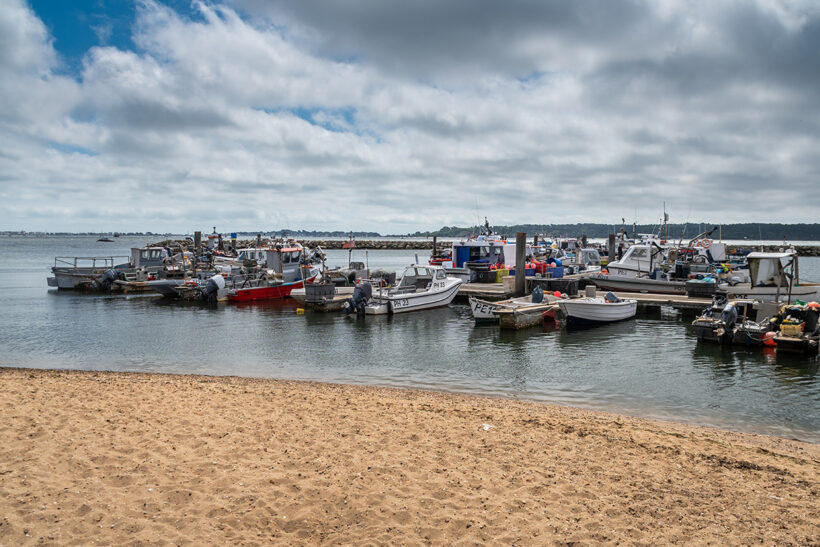Fisheries Innovation and Sustainability (FIS) has published its detailed analysis of possible zero-emission ‘vessels of the future’ – one of the key actions agreed at the ground-breaking workshop of the same name held in Glasgow in 2022, which also resulted in a series of concept designs unveiled by FIS earlier this year.
The workshop highlighted the need for a comprehensive roadmap towards the development of a net-zero UK fishing fleet, covering regulatory, technical and financial obstacles, any one of which could prevent successful transition to net zero.
The report represents the culmination of a collaborative effort between Macduff Ship Design, the University of Exeter’s Centre for Future Clean Mobility and FIS. It sets out designs for alternatively powered fishing vessels, ranging from a 10m creeler to a 24m trawler, based on existing established vessel designs.
These were first examined in a previous report, released earlier this year, and discussed at the recent Fishing into the Future workshop on the transition to net zero (Fishing News, 27 July, ‘Fishing to net zero’). A second stage, supported by Marine Fund Scotland, focused on the development of the new-concept vessel designs based on the most viable clean fuel options identified in the earlier stage.
Duncan Boag, naval architect at Macduff Ship Design, said: “The concept designs we provided for this report represent a feasible way for fishing vessels to transition away from diesel to a net-zero alternative. Whilst we ensured that all the designs are viable from a development perspective, the report also highlights the significant challenges facing this transition that need to be overcome in order to achieve the goal of a net-zero fishing fleet.”

The detailed report from Macduff Ship Design, incorporating data provided by the University of Exeter Centre for Future Clean Mobility, included two options for under-24m whitefish trawlers based on the successful design for the Crystal Sea SS 118, built at Macduff Shipyards in 2020.
Executive director of FIS Kara Brydson added: “These designs show what could be possible for UK fishing vessels if we can address current financial, regulatory and technical barriers.”
Those barriers could be formidable. The detailed report, examining six different concepts and a variety of alternative fuels, suggests that build costs will be significantly higher for the new vessels, even after they have become ‘mainstreamed’, with the initial builds being even more expensive.
In addition to this, changes to design necessitated by the new fuels, such as methanol and LNG, would require larger vessels, or increased nominal power ratings, that would impact on the licences required and potentially also add significant costs to any transition to net zero, with changes to regulations.
The report anticipates ‘smoother interactions with regulators as understanding relating to zero-emission vessels accumulates’. However, increased capital costs and uncertainties surrounding fuel prices require careful consideration and remain a significant challenge for the sector.
Kara Brydson added: “However, they do verify concerns raised in our earlier project – that vessel owners trying to do the right thing in switching to alternative fuels will, for now, be at a critical disadvantage competing in a market with diesel vessels.
“These early adopters must be able to access financial assistance, business advice and regulatory support. Not only that, the enabling architecture (such as ports and harbour infrastructure, fuel supply chains, vessel finance packages and skills and safety training) must be established before these designs can become a reality, meeting government and retailer net-zero targets whilst also keeping fishermen safe and competitive.”
Looking ahead, the report identifies potential next exploratory steps to further progress on the road to net-
zero fishing vessels, including a review of harbour infrastructure, the investigation of retrofitting options for existing vessels, and the use of the concept designs
to build a demonstration vessel. Findings from the report have the potential to influence new innovations and regulatory frameworks, taking practical steps to move towards a sustainable future for the UK seafood industry.
FIND OUT MORE
The full report is available here.
To learn more about the project, contact: k.brydson@fisorg.uk
This story was taken from the latest issue of Fishing News. For more up-to-date and in-depth reports on the UK and Irish commercial fishing sector, subscribe to Fishing News here or buy the latest single issue for just £3.30 here.
Sign up to Fishing News’ FREE e-newsletter here.







